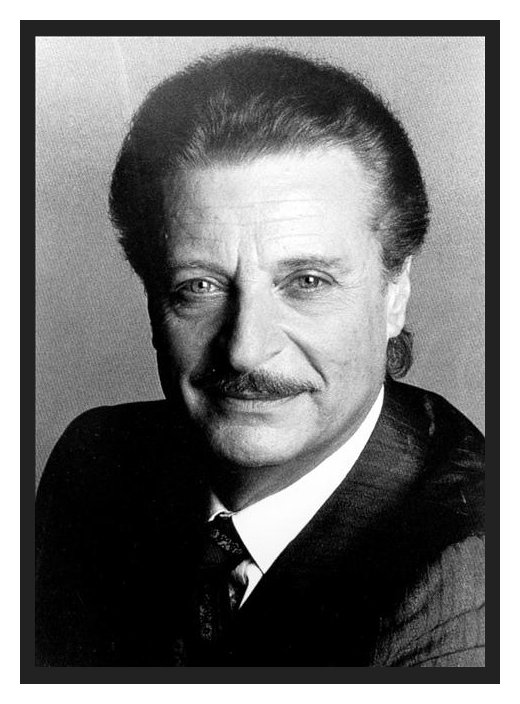

|
Alfredo Kraus at Lyric Opera of Chicago
1962 - Elisir d'amore [American Debut] with Adani, Zanasi, Corena; Cillario 1963 - Barber of Seville with Berganza, Zanasi, Christoff, Corena; Cillario Don Pasquale with Adani, Bruscantini, Corena; Cillario 1964 - Favorita with Cossotto, Bruscantini, Vinco; Cillario Don Giovanni with Stich-Randall, Curtin, Ghiaurov, Kunz, Uppman; Krips, Zeffirelli (set designer) 1965 - [Opening Night] Mefistofele with Ghiaurov, Tebaldi, Suliotis; Sanzogno Carmina Burana with Martelli, Bruscantini; Fournet L'Heure Espagnol with Berganza, Bruscantini; Fournet Rigoletto with Scotto, MacNeil/Bruscantini, Vinco; Bartoletti 1966 - Pearl Fishers with Eda-Pierre, Bruscantini, Ghiuselev; Fournet Italian Flood Relief Benefit Concert Traviata with Maliponte/Rinaldi, Bruscantini; Rossi [Note: There was no Lyric Opera Season in 1967] 1968 - Don Pasquale with Grist, Evans/Washington, Bruscantini; Bartoletti 1969 - Puritani with Rinaldi, Cappuccilli, Washington; Ceccato Don Giovanni with Watson, Ligabue, Gobbi, Evans, Raskin; Leitner, Gobbi (director) 1971 - Rigoletto with Robinson, Cappuccilli, Vinco; Bartoletti Werther with Troyanos, Angot; Fournet, Mansouri (director) 1973 - Manon with Zylis-Gara, Patrick, Gramm; Fournet Daughter of the Regiment with Sutherland, Malas, Resnik, Tourel; Bonynge 1974 - Favorita with Cossotto, Cappuccilli, Vinco; Rescigno Don Pasquale with Cotrubas, Ganzarolli, Sardinero; Bartoletti 1975 - Traviata with Cotrubas, Cappuccilli; Bartoletti 1976 - Rigoletto with Mauti-Nunziata, Mittelmann/Manuguerra; Chailly 1978 - Werther with Minton, Nolen; Giovaninetti Don Pasquale with Blegen, Evans, Stillwell; Pritchard 1979 - [Opening Night] Faust with Freni, Ghiaurov, Stillwell; Prȇtre 1980 - Recital 1981 - Romeo and Juliette with Freni, Raftery, Bruscantini; Fournet 1982 - [Opening Night] Tales of Hoffmann with Welting, Zschau, Masterson, Mittelmann; Bartoletti 1983 - Manon with Scotto, Titus, Washington; Rudel Callas Celebration Concert with Cotrubas, Scotto, Vickers; Bartoletti -- Note: Names which are links
refer to interviews by Bruce Duffie elsewhere on this website.
|
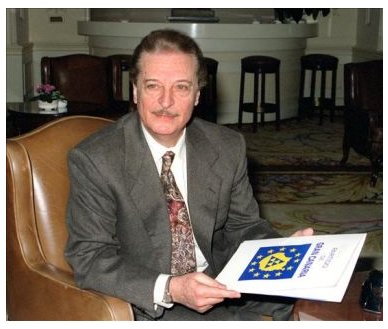 Alfredo Kraus: In
general, French opera is little different from Italian opera.
Massenet is a very romantic composer, and sometimes his music is for
the singers and at the same time in many parts of the opera he's for
the orchestra. For that reason, it's very difficult to
conduct. In general, at least in the operas I've sung, the
character of the tenor is romantic, very lyric, but at the same moment
the orchestra has a more dramatic character sometimes. If the
dramatist is going through an exultation of the romantic part of the
role, the orchestra could get very, very heavy, and if the conductor
doesn't pay attention, he could cover the singers, sometimes.
Alfredo Kraus: In
general, French opera is little different from Italian opera.
Massenet is a very romantic composer, and sometimes his music is for
the singers and at the same time in many parts of the opera he's for
the orchestra. For that reason, it's very difficult to
conduct. In general, at least in the operas I've sung, the
character of the tenor is romantic, very lyric, but at the same moment
the orchestra has a more dramatic character sometimes. If the
dramatist is going through an exultation of the romantic part of the
role, the orchestra could get very, very heavy, and if the conductor
doesn't pay attention, he could cover the singers, sometimes.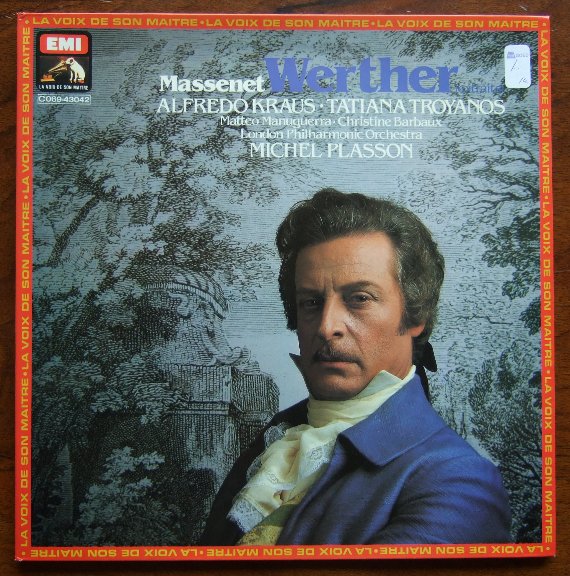 AK: Yes, I think
so. Werther is just the opposite. He has a strong, big
character. He has a big influence on Charlotte. He forces
her to do things.
AK: Yes, I think
so. Werther is just the opposite. He has a strong, big
character. He has a big influence on Charlotte. He forces
her to do things.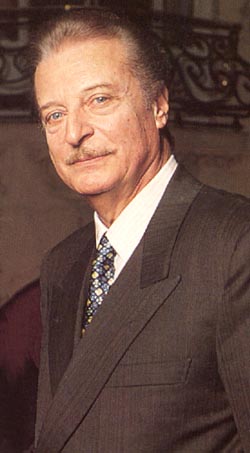 BD: How important
is Werther to Charlotte?
BD: How important
is Werther to Charlotte?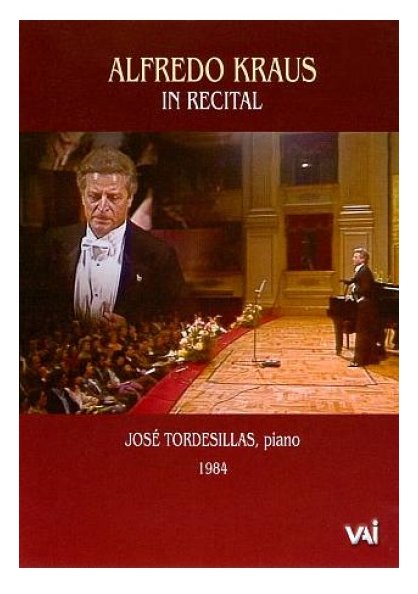 AK: I prefer to do
operas. Only for one reason — in the opera
you have one character to develop in three or four hours. In
concert, you have to sing different arias from different operas with
different personages. It's terrible to have to create something
in three minutes. It's not a question only to produce a sound and
make notes. This is easy. But you have to work in every
aria to give the audience the right impression of what it means.
You have to concentrate the whole opera in one aria, and this is very,
very difficult and it is very, very tiring. I feel dead at the
end of a concert.
AK: I prefer to do
operas. Only for one reason — in the opera
you have one character to develop in three or four hours. In
concert, you have to sing different arias from different operas with
different personages. It's terrible to have to create something
in three minutes. It's not a question only to produce a sound and
make notes. This is easy. But you have to work in every
aria to give the audience the right impression of what it means.
You have to concentrate the whole opera in one aria, and this is very,
very difficult and it is very, very tiring. I feel dead at the
end of a concert.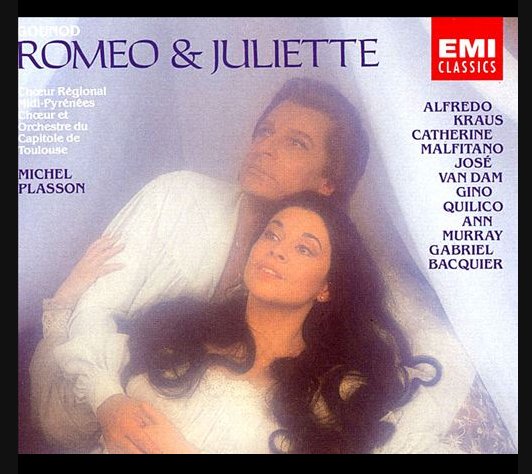 BD: You've paced
your career very carefully by singing only the roles that fit your
voice.
BD: You've paced
your career very carefully by singing only the roles that fit your
voice.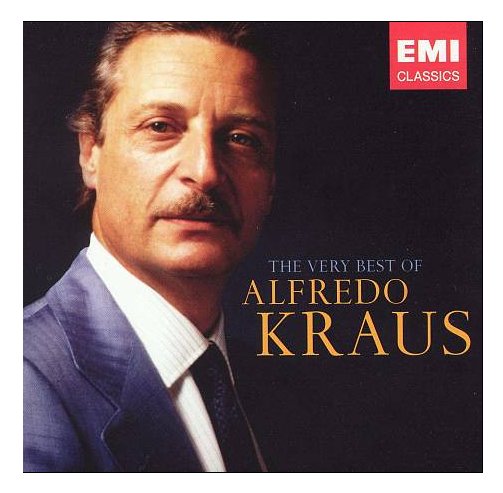 BD: What if a
producer comes along and wants to do it differently?
BD: What if a
producer comes along and wants to do it differently?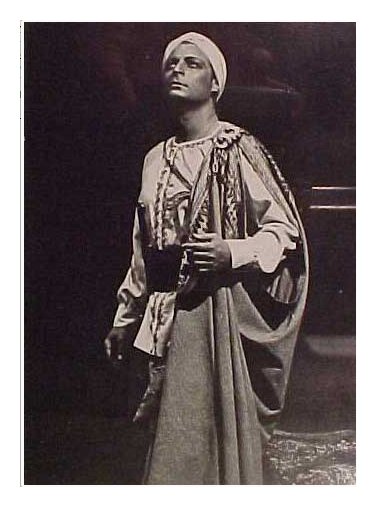 BD: Tell me about
the Pearl Fishers. [Photo at right]
BD: Tell me about
the Pearl Fishers. [Photo at right]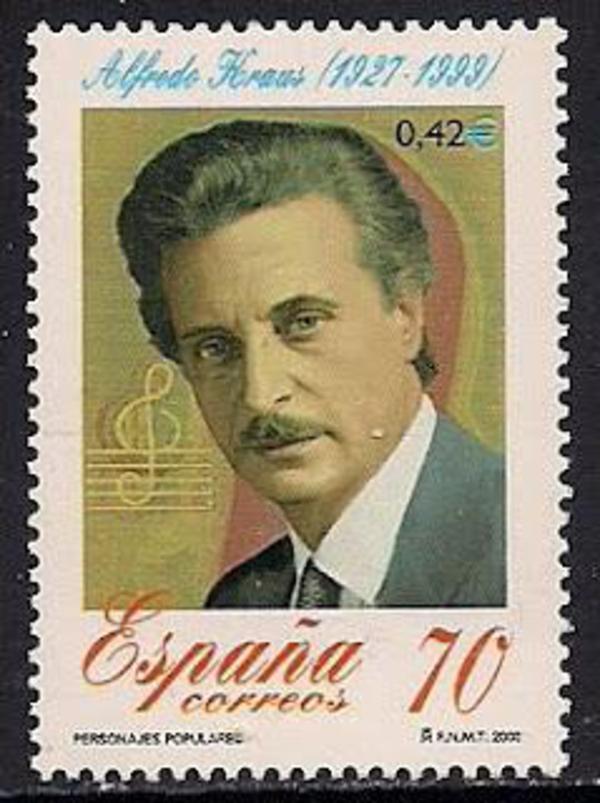 AK: I do enjoy
Chicago, but I don't think it's particularly good for the
acoustic. This is a very big theater, too. The only very
big theater that I know that has fantastic acoustics is the
Colón in Buenos Aires. It is a classic in
construction. It's about 4500 people, so it's enormous but
beautiful — perhaps the most beautiful theater
in the world — and it is unbelievable for the
sound.
AK: I do enjoy
Chicago, but I don't think it's particularly good for the
acoustic. This is a very big theater, too. The only very
big theater that I know that has fantastic acoustics is the
Colón in Buenos Aires. It is a classic in
construction. It's about 4500 people, so it's enormous but
beautiful — perhaps the most beautiful theater
in the world — and it is unbelievable for the
sound.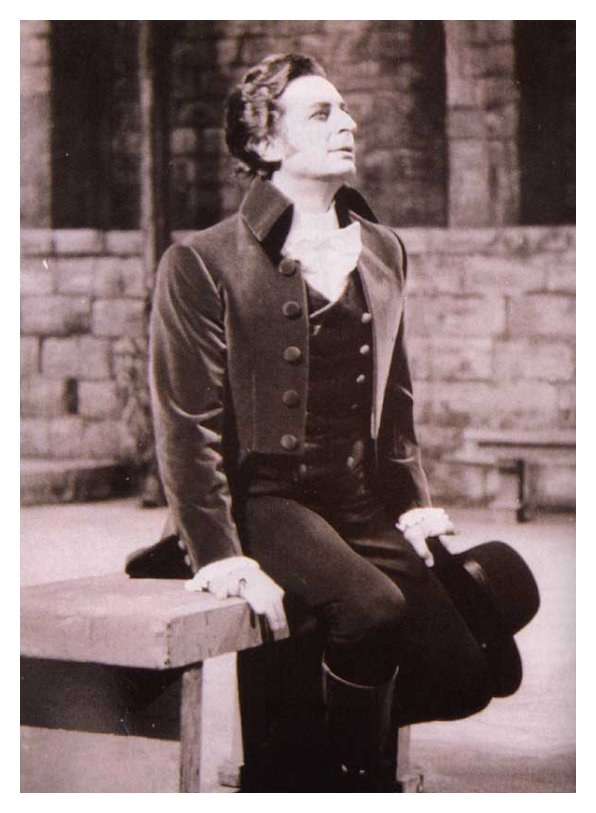 BD: You enjoy
singing.
BD: You enjoy
singing.|
Alfredo Kraus, Lyric Tenor Revered for Phrasing, Was 71 By Allan Kozinn, The New York Times, September 11, 1999 Alfredo Kraus, a lyric tenor who was revered for the refinement of his phrasing and the artistry he brought to bel canto roles, died yesterday at his home in Madrid. He was 71. The cause was pancreatic cancer, his family said. Although he never received the kind of popular acclaim accorded Luciano Pavarotti and Placido Domingo, Mr. Kraus had a tremendous following among opera connoisseurs. In particular he was admired for his bright, trim timbre, his distinctive phrasing and an assured, self-possessed acting style. In his performances in signature roles like the Duke in ''Rigoletto,'' Alfredo in ''La Traviata,'' Nemorino in ''L'Elisir d'Amore'' or the title role in ''Werther,'' Mr. Kraus avoided empty display, preferring to use a composers' demand for virtuosity as an emotional element, intrinsic to the character he was creating. Mr. Kraus's career was also an object lesson in how a singer might preserve his voice, despite the temptations to sing too often and too loud or to take on unsuitable roles. It was not for a lack of offers that he did not sing such bread-and-butter roles as Cavaradossi in ''Tosca'' or Pinkerton in ''Madama Butterfly.'' He learned those roles, and he said that he gave single performances of them early in his career. But he decided that his voice would last longer and remain fresher if he confined himself to the lyric roles of the bel canto repertory. Indeed, he was able to produce his high D, at full power and with a lovely ring, well into his 60's. ''It's a matter of knowing what kind of voice you have from the very beginning and learning to use that voice onstage, with the right technique'' he told The New York Times in 1988. ''It is not so easy, because we are using an instrument that is immaterial. We can't touch it, it's only air. We don't even hear it properly, because we hear a combination of inside and outside sound. You cannot go by what you hear, you must learn to be very sensitive to how it feels, and you can only speak of it in a very figurative language.'' Mr. Kraus also enjoyed running the business side of his career. He did not employ a personal manager during his most active years, preferring to make his own decisions, which were often based on instinct. He would not, for example, work with conductors who he felt tried to sublimate performers' personalities, no matter how auspicious the engagement. He limited his schedule to about 60 appearances a year, and although these usually included performances at the Metropolitan Opera, Covent Garden, the Vienna State Opera, La Scala and the Teatro Colon, in Buenos Aires, he also made a point of appearing in small Spanish and Italian opera houses normally outside the limelight. He owned and personally supervised a small Spanish record label, Carillon Records. Carillon was the first Spanish company to release a complete opera set, a recording of ''Pearl Fishers,'' with Mr. Kraus in the cast. Mr. Kraus was born in Las Palmas, in the Canary Islands, on Sept. 24, 1927. He enjoyed singing in church and at local celebrations, but his father -- an Austrian who had taken Spanish citizenship -- insisted that he prepare for a career in the sciences. Mr. Kraus earned a degree in electrical engineering, but when he was in his mid-20's, he decided to study singing more seriously as well, first in Valencia and Barcelona, later with Mercedes Llopart, in Milan. In 1955 Mr. Kraus won the silver medal in a vocal competition in Geneva. He had appeared onstage in zarzuela performances in Madrid, in 1954, but he always gave the date of his formal operatic debut as 1956, when he sang the Duke in a Cairo performance of ''Rigoletto.'' The Cairo engagement also included Mr. Kraus's only performance as Cavaradossi. |
This interview was recorded in apartment in Chicago on December
7, 1981. Portions
(along with recordings) were used on WNIB in 1987, 1992, 1997 and
1999. The
transcription was made in 1982 and part was published in the Massenet Newsletter in July, 1982,
and in Opera Scene Magazine
in August, 1982. The transcript was re-edited and posted on this
website in 2013.
To see a full list (with links) of interviews which have been transcribed and posted on this website, click here.
Award - winning broadcaster Bruce Duffie was with WNIB, Classical 97 in Chicago from 1975 until its final moment as a classical station in February of 2001. His interviews have also appeared in various magazines and journals since 1980, and he now continues his broadcast series on WNUR-FM, as well as on Contemporary Classical Internet Radio.
You are invited to visit his website for more information about his work, including selected transcripts of other interviews, plus a full list of his guests. He would also like to call your attention to the photos and information about his grandfather, who was a pioneer in the automotive field more than a century ago. You may also send him E-Mail with comments, questions and suggestions.